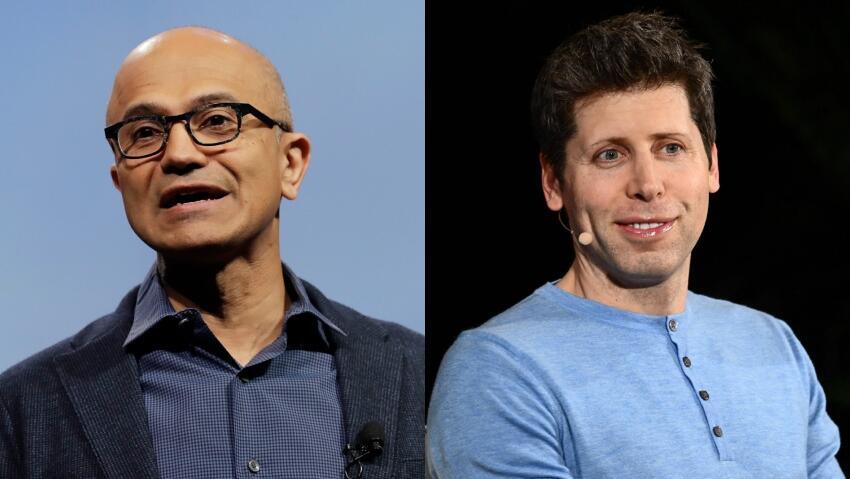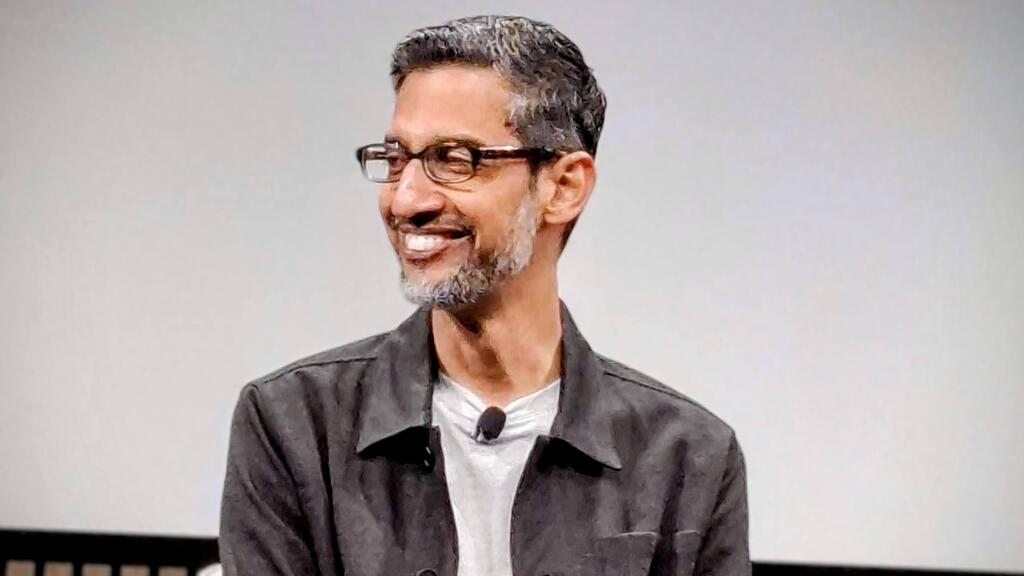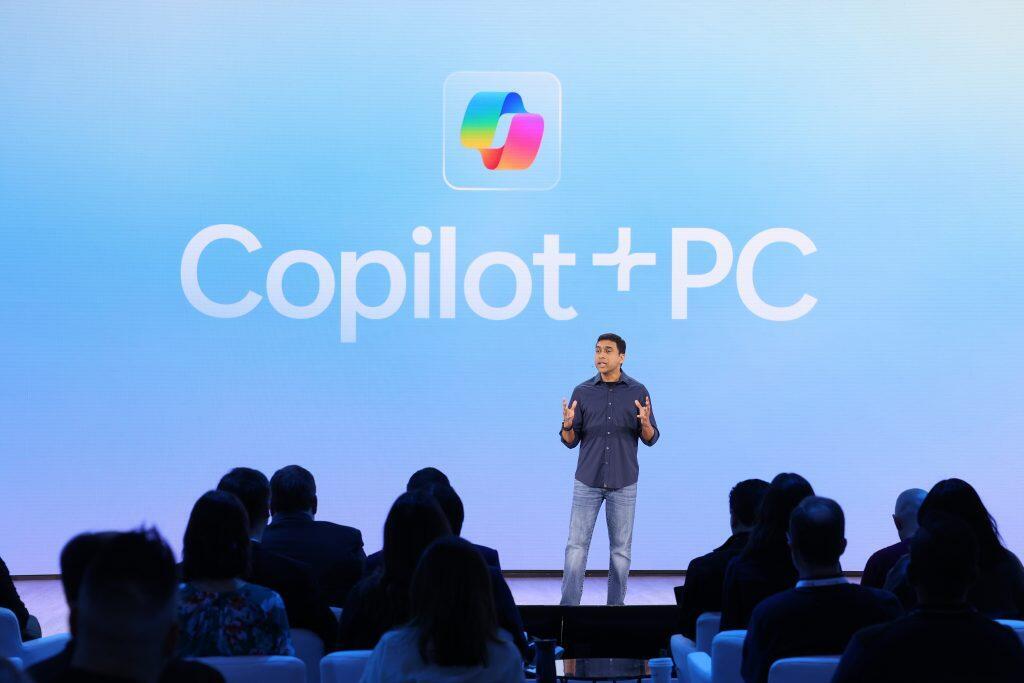Getting your Trinity Audio player ready...
You, my friends, are not the primary audience for AI announcements from Google and OpenAI, with their AI bots, Gemini and ChatGPT respectively; Rather, you are the byproduct of their marketing strategies. In an effort to avoid alarming shareholders (Google) and to attract more investments (OpenAI), these tech giants have shifted their focus away from consumer value, opting instead to promote a hollow techno-utopian vision that encompasses a range of applications from the bizarre to the perilous.
To grasp the reality behind these promises, it's crucial to remain grounded, even when excitement takes over. An interface that feels like it belongs in a science-fiction movie does not equate to technology that actually originates from such fiction. When a company showcases a demo with a voice assistant interface reminiscent of the movie "Her" (as Sam Altman casually tweeted before the GPT-4o reveal), it is deliberately trying to make you believe that it possesses the kind of artificial intelligence depicted in the movie. Life, however, is not Hollywood. And this isn't just because Scarlett Johansson objected to the use of a voice akin to hers.
Little has fundamentally changed in the realm of Large Language Models (LLMs) – the backbone of the increasingly sophisticated interfaces Google and OpenAI have presented. This technology still functions by producing outputs that statistically match the inputs it receives, devoid of any true "understanding" or ability to discern the human concepts of truth or falsehood. It's not "Her" or "Him," but "It," despite the sophisticated façade that better conceals the nature of the technology.
So why does OpenAI showcase an exuberant video of GPT-4o interacting with another GPT-4o or identifying objects in a video? Because from its inception, OpenAI has been selling a dream that is financially draining. The hope is that if enough buzz surrounds AI, organizations will feel compelled to invest in the technology, thus turning a profit. The gamble is that widespread AI discourse will push organizations to adopt it, costs and pitfalls be damned.
Not taking the bait
When OpenAI's CEO, Sam Altman, says he aims to build AGI (Artificial General Intelligence) and is indifferent to the cost, the appropriate reaction is skepticism. Clearly, the objective is financial gain. The concept of AGI based on current technology is more of a captivating narrative than an imminent reality, whereas the financial burdens OpenAI faces are very real. Despite raising over $11 billion, operating and developing this technology is not cheap (with ChatGPT’s estimated daily operating cost around $700,000 in 2023).
However, organizations are not easily convinced. Beyond impressive but limited applications like coding/query writing and basic content generation, a voice assistant prone to fabrications doesn’t present a clear utility for businesses. The use cases that could make OpenAI profitable remain ambiguous, while the legal risks associated with these tools – trained on copyrighted material – are increasingly catching regulators' attention globally.
What is OpenAI doing besides staging dramatic CEO swaps on weekends? Urgently seeking new content to train their models. Recently, they partnered with Reddit, one of the largest content platforms globally. Reddit’s content will feed into ChatGPT, enabling marketers to generate more authentic human-like content and inundate Reddit with it to promote their products. The result will be quite the spectacle.
Yet, this doesn’t sustain the hype, so OpenAI must keep the excitement alive. Perhaps Apple might adopt the technology for Siri to stay competitive with Android. Even if this doesn't happen, the growing hype will pressure other companies to act. Someone will eventually invest, ideally before Microsoft halts its funding of this venture.
Meanwhile, average users are buying into the dream. They believe they will interact with an intelligent AI that responds to their emotions. By the end of this weekend, we are no closer to achieving this dream than we were at the beginning. However, we are moving closer to a point where people can more easily anthropomorphize a chatbot. Already, some individuals use these systems as substitutes for professional therapy, and as voice interfaces become more convincing, the illusion will strengthen. This is a dangerous development, possibly culminating in Arnold Schwarzenegger's biggest fear; Our machines becoming self aware.
The downfall of Google Search through AI integration
When considering Google's recent AI announcements, they initially appear sensible. The company already boasts numerous useful interfaces, so adding capabilities like natural language summarization seems logical. However, the underlying issue lies in the trustworthiness of these Large Language Models (LLMs). While people have grown to trust Google, LLMs don’t offer the same reliability. For instance, asking Google to summarize a news article or insert data from a file into an email can result in inaccuracies.
Even if we focus solely on input rather than output, the language interfaces Google showcased at I/O don’t seem more convenient than traditional touchscreens or mice. Personally, I prefer the simplest methods to interact with my devices, rather than engaging in conversations with them. This shift toward AI integration poses significant risks, primarily to Google's own reputation. The internet is already filled with amusing yet nonsensical "AI summaries" that have appeared alongside some search results for U.S. users. But the damage doesn’t stop there.
Media entities, whose content fuels Google’s AI, depend on the traffic they receive from Google. Now, Google plans to present this content directly on its search results page, bypassing the need to redirect users to the original media websites. This change threatens to exacerbate the already precarious state of journalism, which has been struggling with ad revenue. Consequently, media outlets are likely to see a significant drop in traffic, losing out to Google’s summarized search results.
It’s apparent that even Google is aware of these implications. Nonetheless, the company finds itself in a reactive position. The market narrative suggests that AI is set to replace search engines, and Google, fearing it might be left behind, feels compelled to respond – not because this narrative is true, but because the company prioritizes its stock value above all else. How many of these AI-driven products will receive a few updates before being abandoned as the market shifts focus? My guess is, most, if not all.
Microsoft's calculated approach
Microsoft also made several AI-related announcements at its developer conference this week. So where’s the criticism? It’s right here!
The key difference with Microsoft is its more product-oriented approach to AI innovations. This isn’t necessarily commendable – the integration of ChatGPT into Bing still suffers from the same issues of inaccurate summaries – but it represents a different strategic move. For example, Microsoft introduced Recall, a feature that tracks, records and catalogs user activities on their computer, allowing for searchable history. If it works as promised, it’s not just a gimmick but a functional product. Dystopian? Yes, but it demonstrates business acumen and an effort to enhance Windows’ appeal.
Overall, Microsoft seems less inclined to market dubious ideas as groundbreaking innovations. Instead, it aims to attract developers to build AI applications for Windows. Thanks to its $10 billion investment in OpenAI, Microsoft feels less pressure to engage in frivolous pursuits. Features like a smart copy/paste that converts text to markdown or JSON, or real-time video dubbing in the Edge browser, show practical and appealing advancements that could tempt users away from Chrome.
Despite the hype surrounding the "AI era" being another bubble of populist capitalism, it’s crucial to acknowledge the genuine and necessary applications of LLMs. Developers, analysts crafting complex queries, and professionals generating large volumes of simple content can all benefit from these tools. The exaggerated fears of AI causing mass unemployment are as ludicrous as ever. Instead, various industries are gaining powerful tools that enhance productivity.
However, my concern lies in the tech giants’ reluctance to focus on these practical applications and build the field responsibly. The hype train has already left the station, and when it inevitably crashes into reality, funding for genuinely useful projects might dry up. Starting with pseudo-intelligent chat interfaces that merely appear impressive may have boosted the field’s popularity, but it also presents its greatest risk. The inflated consumer expectations this has generated will likely lead to disappointment. But at least we’ll be able to hear the project closure announcements in a natural voice – though, ironically, that too might be better conveyed through a simple text message.





